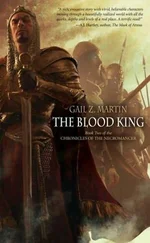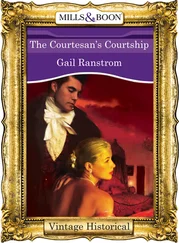I told him that I was sick and that when I was better I would go to visit his father. “Sick? What’s wrong with you?” He sounded alarmed. “Nothing serious, just bronchitis and a fever.” “You’re sure it’s not serious?” And when I said yes he said: “In that case, I wish I could feel your fever.” On the other end of the line I heard him light a cigarette, and in the moment of silence that followed, both of our breathing. “Who are the people he’s staying with?” I asked and pulled the telephone under the blanket. “Friends, Yacov Rudin, also a veteran, and his wife Fanny. Perhaps it’s hard for you to write down the number now?” “Tell me what it is, I’ll remember it. Do you know if they’re organized? Have they got gasmasks, plastic sheets for the windows, masking tape? Should we take them something?” “There’s no need, really. These people you don’t have to worry about, believe me. I just thought it might be interesting.” “And how interesting it is.…” I said, dizzy with over sixty years of history, “I’d be interested to hear what your father thinks about the Zionist experiment now.”
More than two and a half years had passed since we last met, and I still saw his smile as clearly as I heard it in his voice. “Warn the little idealist that she’s not going to meet a Zionist activist. I spoke to him on the phone, the most he is prepared to say is that the whole world is in a mess now, and if he already has to die, then better to die in a Jewish mess.” “To die in the Holy Land? Is that the idea?” “What Holy Land? For my mother, yes, even though she’ll never come to Israel, but for him there’s no such concept as a ‘Holy Land,’ why don’t you wait and hear for yourself?”
In the winter of ’89 Alek was eager to go to Berlin, he was very interested in Berlin then, but both the newspapers he was writing for then had their own correspondents there, and in the end, after “we didn’t stop nagging them,” they sent him to Russia, to cover the elections to the Duma and report on what was happening there in general. In the winter of ’89—to his mother Marina’s horror — he went there for the first time, and then twice more, and on his third trip he found his father, which on the face of things should have been difficult in a country without telephone directories, but in fact “wasn’t difficult at all. For years we heard that he was in Sverdlovsk.” Immigrants, it appears, have information channels of their own.
Alek arrived in Sverdlovsk a few months before the city took back its old name, and found that his father had already applied for an exit visa and was “sitting on his suitcases.” Abram Ginsberg landed in Israel on the night after Yom Kippur.
I didn’t ask: “So what was it like meeting him?” or “So what did you talk about?” or “How did you feel?” You don’t ask Alek questions like these, but I promised to talk to Hagar and to go with her to visit him when she came home. For the first time in the history of our long-distance relations Alek gave me a phone number where I could get hold of him in Paris, and said that he would phone again during the week.
Since I had to talk to Hagar, the story wasn’t confidential, and I repeated it to everyone who came to pay me a sick visit and to everyone who phoned, with a strange enjoyment and without boring myself.
A friend of mine who writes for a local paper said that it was “a great story, only it wouldn’t interest anyone, especially not now.”
Tami said: “Be careful, it would be typical of that maniac to dump his father on you to look after.”
My father said on the phone: “Go know who this man is at all and who he served. If Grandma Dora were alive today, maybe she could have told us … a person can go crazy with these characters who’ve suddenly remembered to sign on as Zionists at this stage of the game.” My mother intervened on the other phone and said: “Excuse me, that’s exactly what the State of Israel is for, so that anybody can remember whenever he likes.” And Talush who was sitting on the armchair next to my bed concluded with: “As long as you don’t end up stuck with that old man in a sealed room.”
Hagar was the only one who was truly excited, and she phoned every day from her group in the Negev while I was still sick in bed to ask how I was and if I had succeeded in making contact with Abram yet. A few months before, towards the end of summer, she had changed her name to “Weber,” and the hostility her last meeting with her father had aroused in her seemed to have subsided as a result. Perhaps the act of changing her name calmed her down, perhaps it was only the symbolic conclusion of an ongoing process, I really don’t know. Among the many subjects that we talk about all the time, Hagar keeps her thoughts about Alek mainly to herself, but even so I knew that she was hungry for information about her father, collecting scraps discreetly so as not to alarm me, my parents, and Yoash, and in any case she was already obsessed with “roots” and “identity,” and I know that she shared this obsession with all her friends.
In a certain sense it was a story of missed opportunity, a series of missed opportunities in fact. I phoned the number Alek had given me four or five times, and every time a woman answered in excited Russian, which grew more excited every time I repeated, “Alek Ginsberg … Abram?” With all her heart she wanted to cooperate, but she couldn’t, all she could do was repeat in varying nuances of interrogation and emphasis the two words: “bolnitza” and “bolnoi.” My fever went down but I was still too weak to get into the car and drive to Kiryat Menachem.
A few days before the beginning of the American attack Alek called again and said that his father had been hospitalized at Hadassah, he apparently needed surgery, but Fanny and Yasha couldn’t understand a word the doctors said and Marina was worried. And how are you? Have you recovered by now?
I arrived at the hospital when they were sending everyone they could home to free beds for an emergency. Outside the ER, soldiers were busy building terrifying showers, and a row of gurneys blocked the pavement. From Information they sent me to Surgery 2, at Surgery 2 they told me that the patient in question wasn’t with them, maybe he was in Surgery 1, or maybe he was at Hadassah Mount Scopus, I had better check it out. In the elevator were a group of tense reservists who looked as if they were getting ready to jump out and run the minute the elevator hit the ground floor. In the end I found a young doctor who had read a few of my books and recognized me, and then it turned out that they had registered him under the wrong name.
“A rotten leg” certainly doesn’t sound like a medical term, but those were the words she used as we stood next to the nurses station. Abram Ginsberg — for some reason they had registered him as “Zaltsburg”—had arrived with “an old wound and a completely rotten leg, which nobody here could understand how he had trodden on all those years, how a person could walk around in such pain … some people are made of iron.…” They had rushed him to the operating room for an amputation, but, she explained, we had to be prepared for the worst, they may have been too late, because we were talking about an aggressive germ that had spread from the wound. At the moment the patient was in intensive care, unconscious, and the prognosis, to be honest, wasn’t brilliant, but with these old guys you can never tell, they’re made of different stuff.
I didn’t go to see Abram Ginsberg in the Intensive Care Unit. Perhaps they wouldn’t have let me in, perhaps they would have.… When my father was there they let one visitor in at a time at certain hours. I was still not free of germs, I was still taking antibiotics, I drove home and told myself that I would go back another day.
Читать дальше












